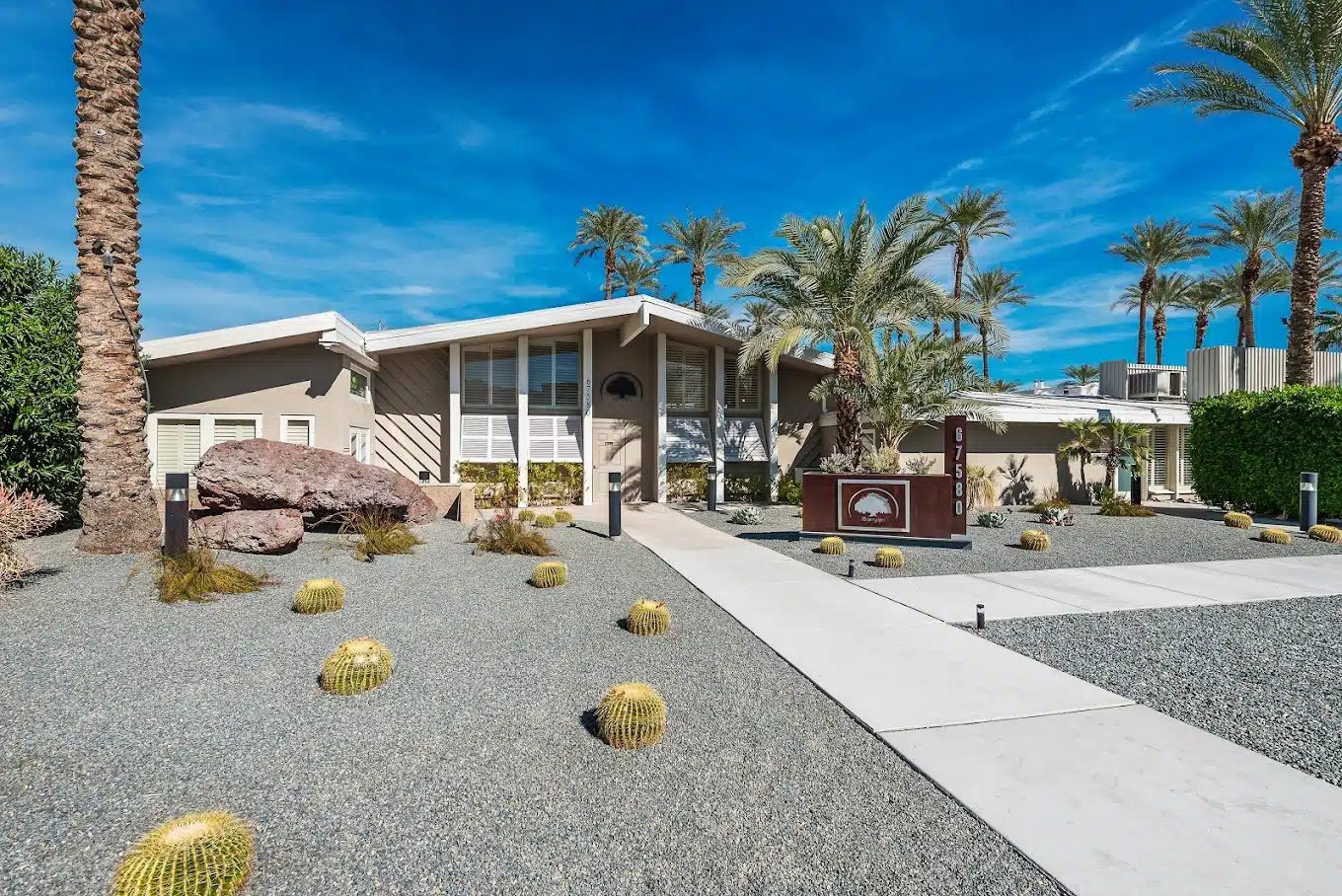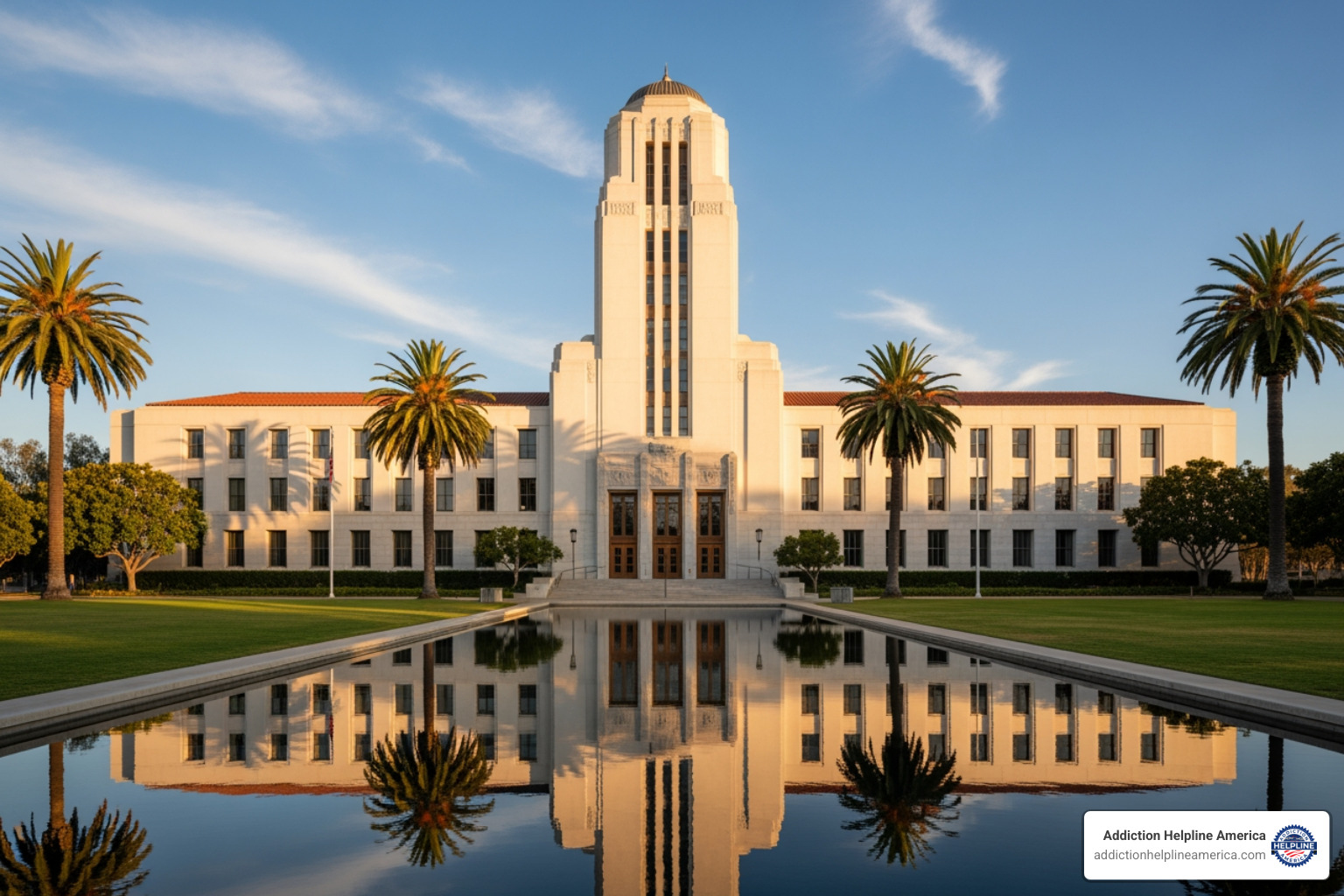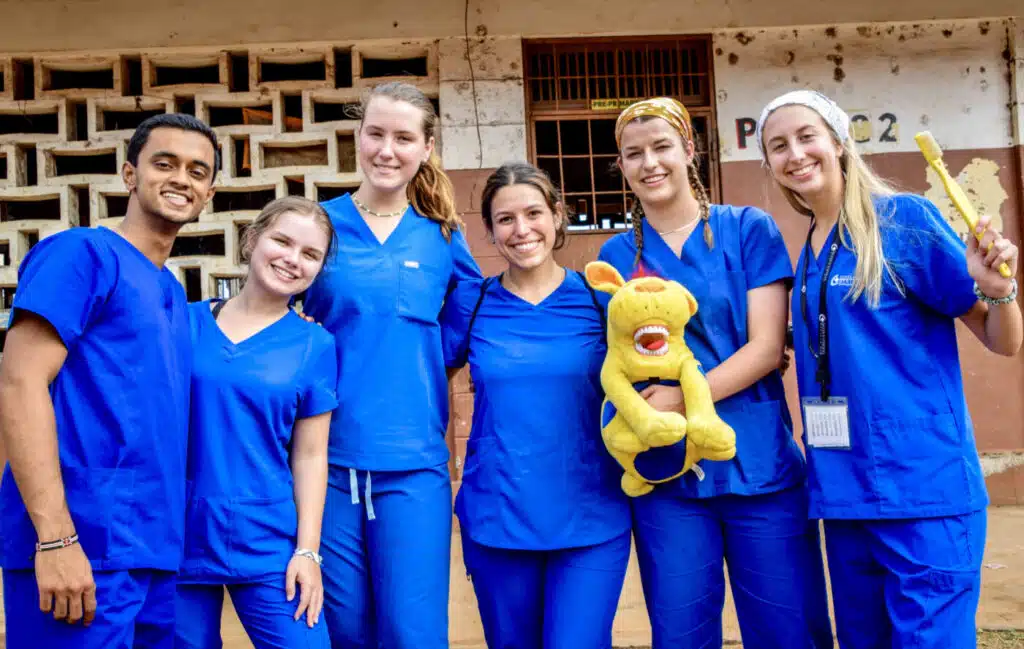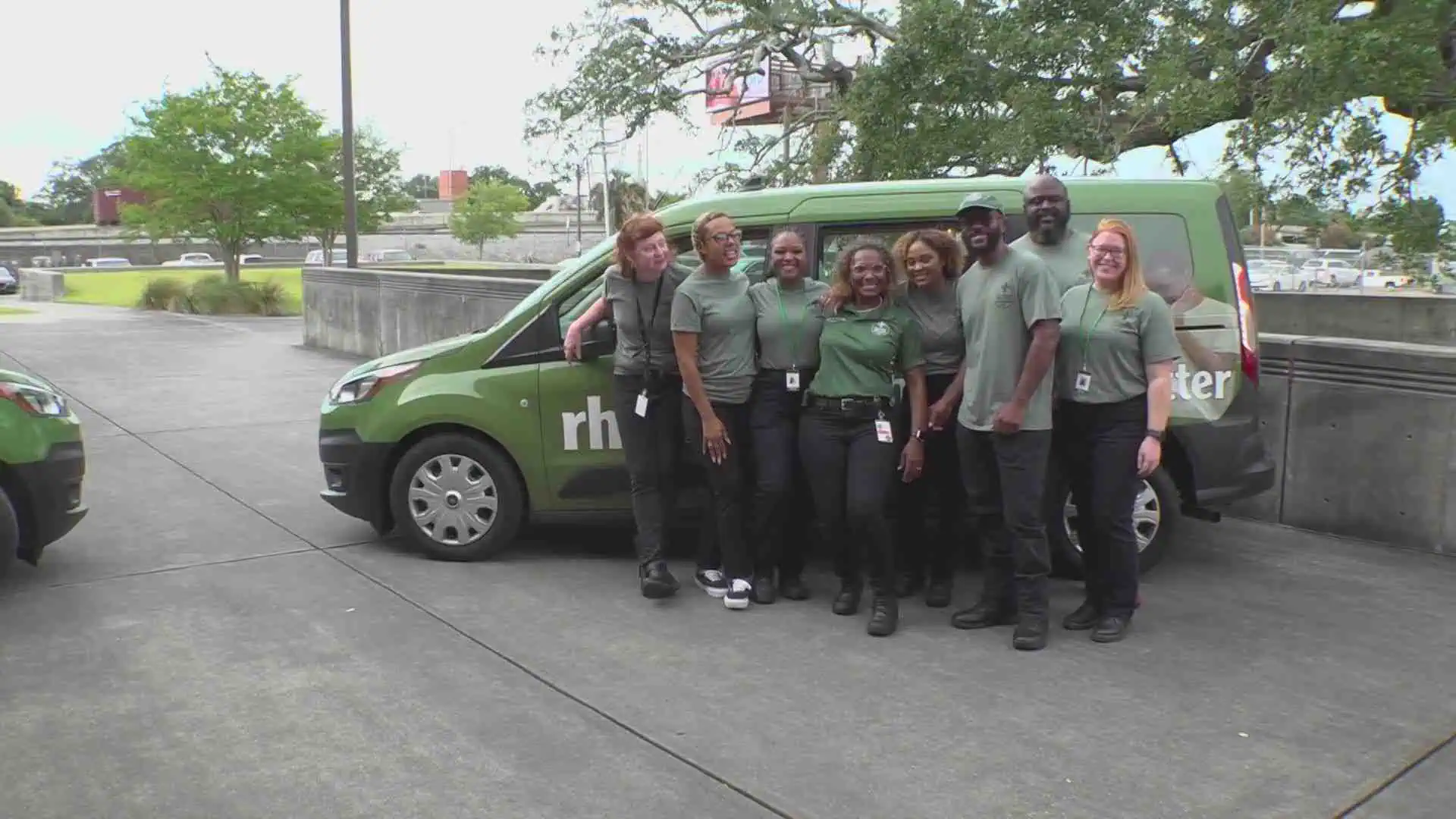
Finding Hope and Help: Free Addiction Treatment in San Diego
2026’s Top Rehab Centers in San Diego CA (15 Free) are a lifeline for those facing addiction without the financial means for private treatment. For immediate help, start here:
Quick Access to Free Rehab in San Diego:
- Start Here: San Diego County Access and Crisis Line – 1-888-724-7240 (24/7)
- County-Funded Programs: 5 centers offering detox, residential, and outpatient care
- Non-Profit Organizations: 5 established centers with comprehensive services
- Faith-Based Programs: 5 spiritually-centered recovery homes and centers
“Free” means: Medi-Cal covered, grant-funded, or sliding-scale fees based on income. No one is turned away for inability to pay at these facilities.
Addiction affects thousands in San Diego, and private rehab can cost $10,000 to $30,000 monthly. However, San Diego County has a robust network of free and low-cost treatment centers funded by state programs, federal grants, Medi-Cal, and non-profits.
This guide identifies 15 top facilities for 2026, chosen for their proven track records, accreditation, and stable funding. These reputable centers have helped thousands recover.
At Addiction Helpline America, we connect people with life-saving treatment. We understand the San Diego landscape and believe financial barriers shouldn’t prevent recovery.

How Free Addiction Treatment is Funded in San Diego
When struggling with addiction, cost shouldn’t be a barrier. Free rehab centers in San Diego exist thanks to multiple funding streams that make recovery accessible to all. Knowing the funding sources confirms these programs are legitimate and stable. It’s a coordinated network designed to support your recovery.
- State and County Funding: The State of California and San Diego County’s Health and Human Services Agency provide the primary funding for a network of providers offering detox, residential, and outpatient care for uninsured or low-income residents.
- Medi-Cal Coverage: Medi-Cal, California’s Medicaid program, is a powerful tool covering a wide range of services at no cost, including detox, residential treatment, and medication-assisted treatment. If you’re a low-income Californian, you likely qualify.
- Federal Grants: Federal grants from agencies like the Substance Abuse and Mental Health Services Administration (SAMHSA) provide targeted funding for specific groups like veterans, pregnant women, or those in high-need communities.
- Private Donations and Non-Profits: Mission-driven non-profits are powered by charitable contributions and fundraising. Their goal is to provide free services, ensuring financial barriers don’t prevent anyone from getting help.
- Faith-Based Support: Many faith-based programs offer completely free care, combining evidence-based treatment with spiritual guidance. Funding comes from their congregations.
- Sliding Scale Fees: For those who don’t qualify for fully free services, many facilities offer sliding scale fees based on income. This ensures even those with some income but no insurance can access affordable care.
More info about treatment options
What are the eligibility requirements for accessing these free services?
Eligibility requirements are designed to help those in need, not create barriers. Key criteria generally include:
- San Diego County Residency: Most county-funded and local non-profit programs require proof of residency, such as a utility bill or ID.
- Income Verification: Low-income status is usually demonstrated with pay stubs, tax returns, or proof of unemployment. If you’re struggling financially, you likely qualify.
- Lack of Private Insurance: Free programs often prioritize individuals without private health coverage. If you have Medi-Cal, you’ll be directed to programs that accept it.
- A Clinical Assessment: This is universally required to determine the appropriate level of care for your specific needs, such as detox, residential, or outpatient treatment.
- Specific Populations: Some programs have additional requirements. Veterans may need proof of service, and pregnant women often receive priority access.
If you’re struggling and can’t afford private treatment, you likely qualify for help in San Diego. The first step is to reach out.
Call Now – Your Journey to Recovery Begins Today!

Take the first step towards a healthier life! Call now to connect with our compassionate team and start your recovery journey today. Your path to healing awaits!
Our recovery specialists are available 24/7 to provide support, and all calls are confidential and free. Reach out anytime – we’re here to help!
How do these centers handle insurance or lack thereof for patients?
2026’s Top Rehab Centers in San Diego CA (15 Free) excel at removing financial barriers.
- Accepting Medi-Cal: Many facilities accept Medi-Cal, which typically covers the full cost of comprehensive care, including residential treatment and medication-assisted therapy.
- Grant-Funded Slots: Non-profit and county programs use grants to offer free treatment slots for uninsured individuals. While waitlists can exist, these slots are a lifeline for thousands.
- No-Cost Services: Some programs, especially faith-based ones, are entirely grant- or donation-funded and provide treatment at zero cost, regardless of insurance status.
- Assistance with Benefits Applications: Many centers have staff who help clients apply for Medi-Cal and other benefits, securing long-term funding for recovery.
The core principle is that no one is turned away solely for inability to pay. While space is limited, financial hardship itself won’t bar you from life-saving care. At Addiction Helpline America, we guide people through these options daily. Whether you have Medi-Cal or no insurance, we can connect you to a program that fits your situation.
2026’s Top Rehab Centers in San Diego CA (15 Free)
Finding the right support can be overwhelming, but San Diego has a strong network of free, accessible addiction treatment programs that have helped thousands. These established programs are funded through reliable sources like county budgets, federal grants, Medi-Cal, and non-profits.
Below are the types of programs that form the backbone of free recovery services in San Diego.

County-Funded & Referral Services
These programs are the primary gateway to free treatment in San Diego, offering comprehensive care.
1. San Diego County Access and Crisis Line (ACL)
- Services: 24/7 crisis intervention, initial screening, and referral to county-funded programs.
- Eligibility: All San Diego County residents.
- How to Apply: Call 1-888-724-7240.
- Standout: The official starting point for all county-funded behavioral health services.
2. Community Recovery Programs
- Services: Medical detox, residential treatment, intensive outpatient programs (IOP), and sober living connections.
- Eligibility: Low-income individuals and those with Medi-Cal.
- How to Apply: Call the Access and Crisis Line for an assessment.
- Standout: A wide network of evidence-based treatment options across the county.
3. Veteran Support Services
- Services: Residential treatment, outpatient counseling, PTSD therapy, and peer support. See programs like the VA San Diego Healthcare System Mission Valley CBOC San Diego CA.
- Eligibility: Veterans, with a focus on those experiencing homelessness.
- How to Apply: Contact their intake department or work through the VA system.
- Standout: Specialized care designed for veterans that understands military culture.
4. Integrated Health Centers
- Services: Outpatient counseling, Medication-Assisted Treatment (MAT), and dual diagnosis services.
- Eligibility: Medi-Cal, uninsured, or low-income individuals.
- How to Apply: Schedule an appointment directly.
- Standout: Primary care, mental health, and addiction treatment are all under one roof.
5. South Bay Community Health
- Services: Outpatient substance use counseling and mental health support.
- Eligibility: Primarily serves South Bay residents and accepts Medi-Cal.
- How to Apply: Call their intake line for a screening.
- Standout: Culturally competent care with bilingual services for diverse communities.
Top Non-Profit Rehab Centers for 2026
Non-profits fill critical gaps, often serving populations that might otherwise be missed.

6. Adult Rehabilitation Programs
- Services: Long-term residential programs combining work therapy, vocational training, and counseling.
- Eligibility: Adults (often men) willing to commit to a structured, work-based model.
- How to Apply: Call their admissions department or walk in for an interview.
- Standout: A long-term model like that of San Diego Freedom Ranch Campo CA that fosters discipline and life skills.
7. Comprehensive Recovery Villages
- Services: Integrated substance use treatment, case management, and pathways to housing for individuals experiencing homelessness.
- Eligibility: Individuals experiencing homelessness in San Diego.
- How to Apply: Access through the county’s coordinated entry system.
- Standout: Tackles addiction alongside housing instability and unemployment.
8. LGBTQ+ Recovery Services
- Services: Affirming and inclusive residential and outpatient treatment.
- Eligibility: Individuals who identify as LGBTQ+.
- How to Apply: Call their dedicated intake line for a confidential screening.
- Standout: A safe, non-judgmental space to focus on healing.
9. Re-Entry Support Programs
- Services: Sober living, workforce training, and behavioral health for those transitioning from incarceration.
- Eligibility: Formerly incarcerated or justice-involved individuals.
- How to Apply: Contact their re-entry services department.
- Standout: Provides tools to break the cycle of addiction and incarceration.
10. Community Self-Help Centers
- Services: Residential and outpatient programs emphasizing peer support and life skills.
- Eligibility: Low-income adults needing substance use treatment.
- How to Apply: Call the center directly for a screening.
- Standout: Long-standing community presence with accessible, peer-supported recovery models.
Call Now – Your Journey to Recovery Begins Today!

Take the first step towards a healthier life! Call now to connect with our compassionate team and start your recovery journey today. Your path to healing awaits!
Our recovery specialists are available 24/7 to provide support, and all calls are confidential and free. Reach out anytime – we’re here to help!
Faith-Based and 12-Step Focused Programs for 2026
These programs integrate spiritual principles and the 12 Steps, often at no cost.
11. Mission Recovery Centers
- Services: Long-term (6-12 month) residential programs with counseling, work assignments, and spiritual reflection, similar to the San Diego Rescue Mission Haven of Hope San Diego CA.
- Eligibility: Often targets homeless men and women.
- How to Apply: Contact the center for intake procedures.
- Standout: A comprehensive, faith-centered approach addressing root causes.
12. Challenge Recovery Programs
- Services: Disciplined residential programs for adults and teens integrating Christian principles, counseling, and education.
- Eligibility: Willingness to commit to a faith-based curriculum.
- How to Apply: Call their admissions office for an interview.
- Standout: A highly structured curriculum focused on spiritual growth.
13. Recovery Clubhouses
- Services: Free meeting space for various 12-step groups (AA, NA, etc.).
- Eligibility: Anyone seeking recovery through 12-step programs.
- How to Apply: Simply show up for a meeting.
- Standout: Hub for dozens of free meetings daily, offering immediate peer support.
14. Serenity Houses for Women
- Services: Residential programs for women, including support for pregnant and parenting mothers.
- Eligibility: Women seeking recovery, including those with children.
- How to Apply: Call for an assessment.
- Standout: Specialized care that often allows mothers to remain with their children.
15. Pathways Recovery Homes
- Services: Residential recovery homes for men emphasizing the 12-step philosophy and peer support.
- Eligibility: Men committed to a 12-step social model recovery program.
- How to Apply: Call for an interview.
- Standout: A peer-driven model that fosters brotherhood and mutual accountability.
Your Journey to Recovery: What to Expect
Once you’ve connected with one of 2026’s Top Rehab Centers in San Diego CA (15 Free), knowing what to expect can ease anxiety. While each facility is different, most recovery paths share common experiences.

What is the typical duration of treatment at these facilities?
There’s no universal timeline for recovery; your journey is unique. However, treatment often follows predictable phases:
- Detox (3-10 days): This first step focuses on safely managing withdrawal symptoms under medical supervision. It is especially critical for substances like alcohol.
- Residential/Inpatient Treatment (30-90+ days): This provides a 24/7 healing environment away from daily triggers. Most programs last 30, 60, or 90 days, though some long-term programs extend for six months to a year.
- Outpatient Treatment (Several months to a year): This flexible option allows you to live at home. Programs like Partial Hospitalization (PHP) or Intensive Outpatient (IOP) gradually decrease in intensity as you build skills.
- Aftercare (Ongoing): This is a long-term commitment to recovery through counseling, 12-step meetings, or alumni groups.
The free programs in San Diego tailor treatment length to individual needs, ensuring you progress at the right pace.
Are there specific programs for different needs?
Yes. One-size-fits-all treatment doesn’t work. San Diego’s free centers offer specialized programs:
- Dual Diagnosis Programs: For those with co-occurring addiction and mental health issues (like depression, anxiety, or PTSD), integrated care treats both conditions simultaneously.
- Gender-Specific Programs: Men-only or women-only programs create safe spaces to address gender-specific challenges without distraction.
- LGBTQ+ Affirming Care: These programs provide an understanding environment where individuals can heal without facing judgment about their identity.
- Veterans Programs: These programs are designed for and by veterans, understanding military culture and combat-related trauma.
- Programs for Pregnant and Parenting Women: These vital services prioritize the health of both mother and child, often allowing them to stay together during treatment.
- Culturally-Specific Programs: Bilingual services and culturally sensitive approaches make recovery accessible to San Diego’s diverse communities.
What is the process for aftercare and ongoing support?
Completing a program is the beginning of your recovery journey, not the end. Aftercare is what sustains long-term sobriety.
- Relapse Prevention Plan: Before leaving, you’ll create a personalized plan to identify triggers, develop coping strategies, and establish a support network.
- Sober Living Homes: These are supportive, drug-free homes that bridge the gap between residential treatment and full independence.
- Alumni Groups: Many centers offer alumni groups to keep you connected to a supportive peer community.
- Twelve-Step Meetings: Free meetings like Alcoholics Anonymous (AA) and Narcotics Anonymous (NA) are the backbone of aftercare for millions.
- Ongoing Counseling: Continued therapy provides mental health support as you steer early recovery.
- Case Management: These services connect you to practical resources like housing, job training, and legal aid. Research shows that consistent support, sometimes through methods like remote patient monitoring, improves outcomes.
The common thread is that you don’t have to do it alone. Successful recovery involves staying connected and asking for help.
Frequently Asked Questions about 2026’s Top Rehab Centers in San Diego CA (15 Free)
Facing addiction raises many questions, especially when seeking free treatment. Here are answers to common concerns we hear at Addiction Helpline America about 2026’s Top Rehab Centers in San Diego CA (15 Free).
What if I’m on a waitlist for a free rehab center?
Waitlists are a reality for free programs due to high demand, but you can still be proactive while you wait.
- Stay Active in Recovery: Attend free, daily 12-step meetings like AA and NA for immediate peer support.
- Seek Outpatient Services: Many centers offer outpatient counseling or support groups that may have immediate openings.
- Use Crisis Lines: For immediate support, call the San Diego County Access and Crisis Line at 1-888-724-7240 anytime.
- Ask About Interim Services: Some facilities offer peer support or group sessions for individuals on their waitlist.
- Stay in Contact: Check in regularly with the intake coordinator to show your commitment and be ready if a spot opens unexpectedly.
Can my family be involved in my treatment?
Yes, and it’s highly encouraged. Addiction affects the whole family, and their involvement can be crucial for healing.
- Family Counseling: Many centers offer family therapy to heal relationships, improve communication, and help everyone understand addiction as a disease.
- Visiting Policies: Policies vary by facility. Contact is often restricted initially to help you focus, then structured visits are introduced as you progress.
- Family Education: Workshops help loved ones learn about addiction, set healthy boundaries, and support your recovery effectively.
- Family Support Groups: Al-Anon and Nar-Anon are free, invaluable 12-step programs for family and friends of those with addiction.
What is the success rate for these free centers?
Measuring “success” in recovery is complex. It can mean total abstinence, reduced use, or improved quality of life. The journey isn’t always linear.
What’s clear is that addiction treatment works. National research shows that people who engage in treatment have far better outcomes than those who don’t. Your personal commitment and aftercare participation are the biggest predictors of long-term success. A person’s dedication is more important than the cost of the program.
Reputable centers track outcomes for accreditation (from bodies like CARF or The Joint Commission) and quality improvement. They employ qualified professionals dedicated to providing evidence-based care. At Addiction Helpline America, we’ve seen countless individuals succeed through these free programs. They provide the tools; you provide the commitment.
Call Now – Your Journey to Recovery Begins Today!

Take the first step towards a healthier life! Call now to connect with our compassionate team and start your recovery journey today. Your path to healing awaits!
Our recovery specialists are available 24/7 to provide support, and all calls are confidential and free. Reach out anytime – we’re here to help!
Conclusion: Take the First Step Towards a New Life
If you’ve made it this far, you already know that recovery is possible and you don’t have to face it alone.
This guide has shown that San Diego has a strong, compassionate network of free treatment options. Whether it’s a county-funded program, a dedicated non-profit, or a faith-based center, help is available regardless of your financial situation. These 15 types of established programs offer everything from detox to long-term support, proving that our community believes treatment should be accessible to all.
We understand that taking the first step is overwhelming. You may have questions about eligibility, waitlists, or finding the right fit. That’s where Addiction Helpline America comes in.
Our team provides free, confidential support to help you steer these options. We offer personalized guidance to match you with a program that fits your unique needs, whether it’s for dual diagnosis, veteran support, or LGBTQ+ affirming care.
Every day is an opportunity to choose a different path. The centers highlighted here are ready to support you. Your new life is waiting. It starts with one brave decision to reach out for help.
Contact us today to find a rehab center near you
Our helpline is 100%
free & confidential
If you or someone you care about is struggling with drug or alcohol addiction, we can help you explore your recovery options. Don’t face this challenge alone—seek support from us.
Programs
Resources
Will my insurance
cover addiction
treatment?
We're ready to help
Find the best
drug or alcohol treatment
center
Are you or a loved one struggling with addiction? Call today to speak to a treatment expert.







